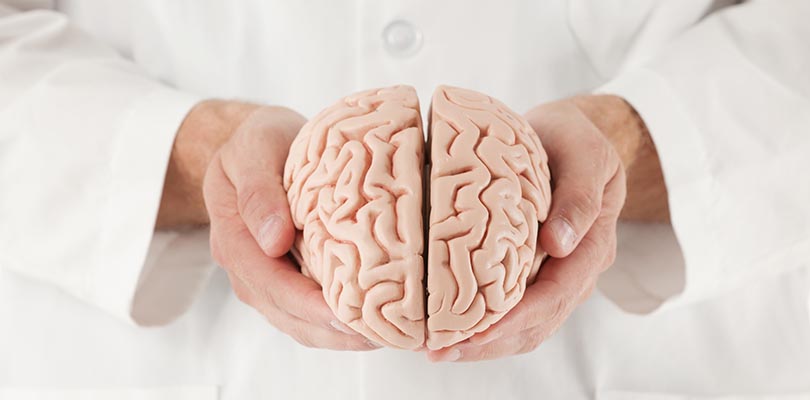What are Prion Diseases?
Prions are proteins in the brain that can cause normal proteins to function abnormally, which then results in developing a prion disease. Both humans and animals can be affected by prion diseases.
Prion diseases only affect about 300 people each year in the US. They can be contracted through contaminated meat products.
Over time prion diseases are known to be degenerative, and they're known to promote the loss of neurons. The treatment for prion diseases is extremely limited, and as of now, there is no cure.
Creutzfeldt-Jakob Disease
There is a large variety of prion diseases. The most common prion disease is called Creutzfeldt-Jakob disease, also known as CJD. CJD is a condition that can be inherited, but it can also develop spontaneously without warning. These spontaneous cases of CJD are called sporadic CJD. These usually affect those around the age of sixty.
Acquired CJD is caused by being exposed to tissue during a medical procedure that has been infected. This can occur with certain organ transplants, such as cornea transplants. CJD can be extremely debilitating and can cause physical disability and eventually, death.
Variant CJD is infectious. It is related to mad cow disease. This is usually spread through the consumption of infected meat. By eating the meat, it can cause prion proteins within people to develop abnormally. This type of CJD is more likely to affect younger people.
As of now, there is no cure for CJD. Treatment is only geared towards making the patient comfortable and treating their symptoms. There are no options for treatment to slow down the progress of the disease either.
Fatal Familial Insomnia
This type of prion disease is inherited. Fatal familia insomnia, also known as FFI, affects the thalamus (a part of your brain) which controls one's sleep cycle. With FFI, the loss of neurons mainly comes from the thalamus, which results in a disruption of one's sleep cycle.
According to the NIH, "The first symptoms of FFI usually begin in mid-life and may include progressive insomnia, weight loss, lack of appetite, too high or too low body temperature, and rapidly progressive dementia."
This type of prion disease is almost always related to a genetic mutation in the PRNP gene, and it is usually inherited. Sporadic cases of FFI are extremely rare.
While research is ongoing, there is currently no cure. Within 12 to 18 months of experiencing the first symptoms, death will often occur.
Gerstmann-Sträussler-Scheinker Disease (GSS)
Gerstmann-Sträussler-Scheinker disease (GSS) is another neurodegenerative brain/prion disease that is also inherited. This disease is extremely rare.
Vitamins and minerals are essential nutrients our bodies need. We need these nutrients to fight off infections, grow, and help organs function properly.
Most first experience the disease between ages 35-55. Loss of muscle coordination is one of the first symptoms, also known as ataxia. As the illness progresses, the ataxia can become more severe, and most patients develop dementia. Blindness, deafness, muscle spasms, and slurring of speech may also occur as the disease progresses.
Unfortunately, there is neither a cure nor treatment options for GSS.
Kuru
Kuru was initially discovered amongst a group of people from New Guinea who practiced cannibalism. They ate the brains of the deceased as part of their funerals.
While this practice was stopped in 1960, there were cases reported long after due to the illness's long incubation period. The incubation period is often a little over a decade, but some cases have shown to have an incubation period of five times that (over 50 years).
You are at the highest risk of contracting when consuming diseased human brains. The symptoms can include muscular coordination issues, headaches, trouble walking, difficulties with swallowing, muscle tremors, and limb pain. After the first sign of symptoms, death usually occurs within a year.
Currently, there is no known treatment nor cure for Kuru.
Variably Protease-Sensitive Prionopathy (VPSPr)
In some ways, this type of prion disease is similar to GSS. However, it is not influenced by a genetic mutation. Speech deficits, cognitive impairment, and other psychiatric symptoms can occur as the disease progresses.
Ataxia and Parkinson's disease also have a chance of developing. This usually affects those around the age of 70. After the onset of symptoms, patients will often not survive past two years. Around 40% of patients diagnosed with VPSPr have a family history of dementia.
Dementia
Dementia is more of a symptom than a specific disease. Various diseases can cause dementia, including prion disease.
Dementia usually involves the loss of memory, and it brings about struggles with thinking and social skills. While Alzheimer's disease is the most common cause of progressive dementia, many individuals with prion diseases have a high chance of developing it.
With prion diseases, the deterioration of brain tissue tends to be the leading cause of dementia.
Continuing Research Into Prion Diseases
Prion diseases are almost impossible to treat right now. Medical scientists require more time to research, and they also need more resources to conduct this research.







